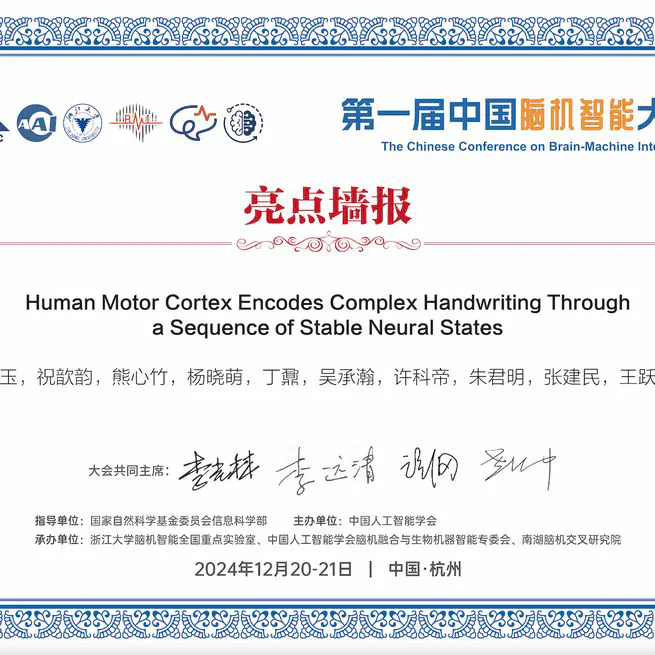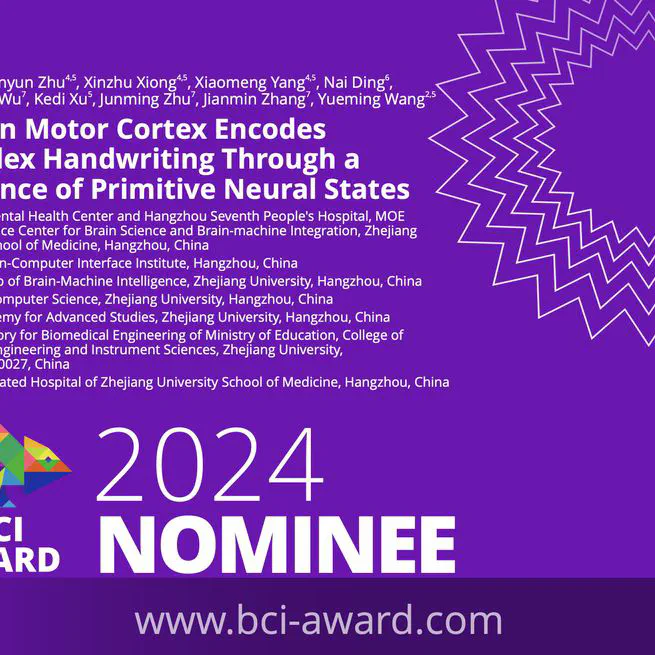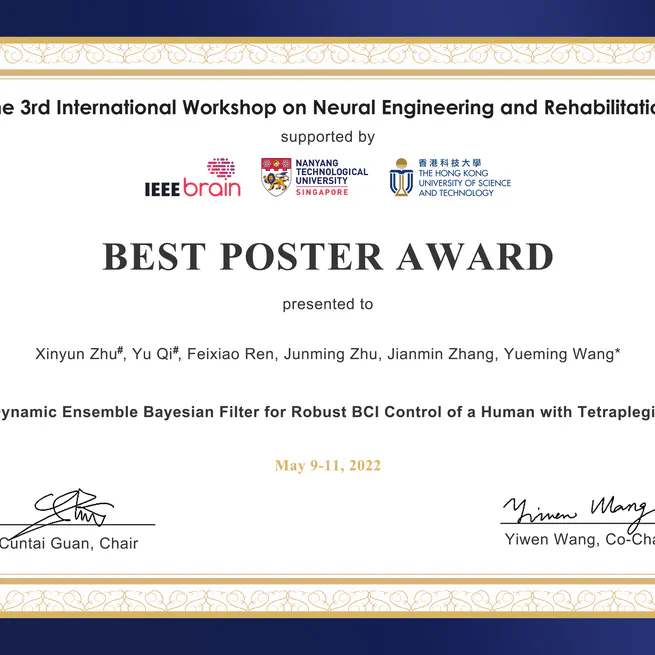
Leveraging the unique paradigm of Chinese character writing, this study uncovered a novel mechanism of sequential regulation in the brain’s encoding of complex motor sequences, based on activity in the human motor cortex. Building on this discovery, a state-dependent motor encoding and decoding model was developed, culminating in the creation of China’s first brain-controlled robotic arm system capable of writing Chinese characters.
Dec 20, 2024

We demonstrated that the human motor cortex encodes complex handwriting movement by sequencing a small set of primitive states. The tuning function of neurons remains stable within states while varying largely among different states, which could be the key factor to inaccurate decoding. Based on this, we proposed state-dependent neural encoding and decoding computing models that better explained neural activities and handwriting trajectory decoding performance, enabling online decoding of recognizable Chinese characters.
Oct 8, 2024

One critical problem in BCI systems is how to achieve robust control. The challenge lies in the variability of neural signals, that can be induced by: noises and variability of neural encoding associates with brain states. When neural signal changes, there can be decoding errors given a static neural decoder, exhibiting unstable BCI control. Ideally, a neural decoder should dynamically change along with changes in neural signals to achieve robust control. But how to achieve this? We propose a DyEnsemble model, which builds a pool of models to encode various neural functions, assigns the model weights dynamically according to the incoming neural signals, and assembles them in time with Bayesian model averaging rules. In this way, our decoder adjusts itself along with changes in neural signals.
May 9, 2022